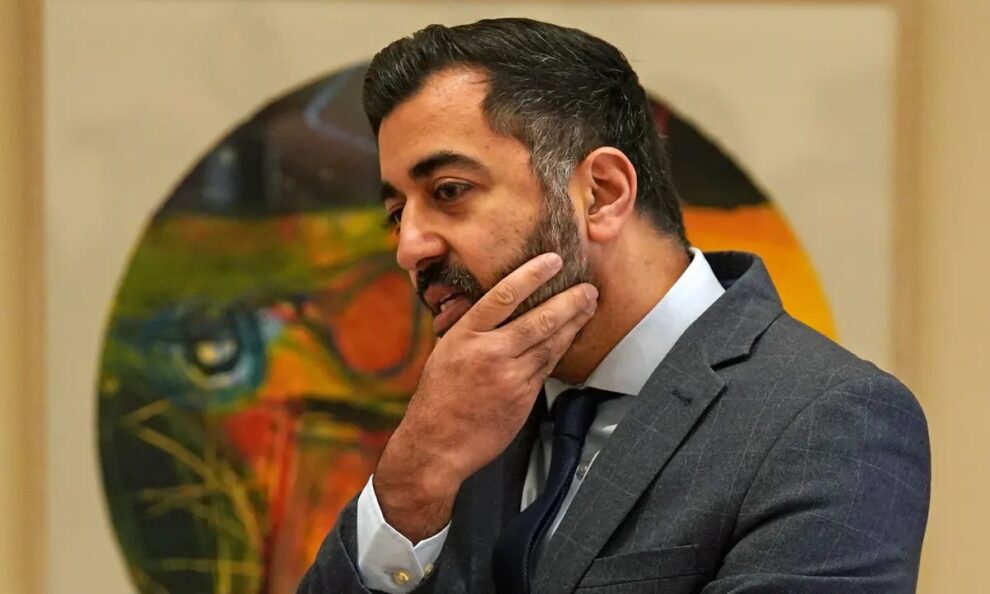Scotland’s devolved government has been beset by poor decision-making for the past decade because of an obsession with constitutional disputes, a thinktank says.
The report, by Gordon Brown’s Our Scottish Future thinktank, which has close ties to Labour, says much-needed reforms to public services and economic investment have been hampered by short-term decision-making and an unrelenting focus on referendums and elections.
Scotland’s continued focus on staging a fresh independence vote has left the country on “constitutional and political high alert” since the 2014 referendum, the report argues.
Under Nicola Sturgeon, the former first minister, and her successor, Humza Yousaf, the Scottish government has been suffering from “consultitis” by publishing more than 1,000 consultations, plans and strategy papers in nine years.
Since September 2014, there have been 529 strategy papers or plans, or more than one published every week, and 669 consultations. Of those strategies, 113 were on health and care, 60 on the economy, and 82 on climate change.
Since Yousaf became first minister in March, the number of ministers in the Scottish National party and Scottish Green party government has increased to 30, up from 18 when Alex Salmond was first minister. That means more than 40% of the 70 MSPs in those parties are now ministers.
That leaves the devolved administration “top-heavy and cluttered”, and prizing announcements over delivery, draining civil service resources at the expense of action, the report argues, leaving a significant implementation gap.
While Scotland has enjoyed successes under the SNP, including a new road bridge over the Firth of Forth, and on patient safety, there have been notable failures, including with educational reforms, the Scottish ferries scandal, undelivered reforms to the care system, the botched census and glacial action on climate.
The report says the number of ministers should be capped and the government needs a greatly strengthened finance division, which it likened to a mini-Treasury, and a delivery unit, while Holyrood needs to empower committee conveners and pay them more.
The paper is the latest in a series of reform proposals from Brown’s thinktank, which focuses heavily on improving devolution and constitutional reforms to act as a counterweight to the Scottish government’s demands for independence.
As first minister, Sturgeon argued she had a mandate to pursue independence. The SNP had won every Scottish and UK election since 2014, while the EU referendum exposed a deep democratic deficit since 62% of Scots voted to stay, she said.
However, dissatisfaction with the Scottish government is increasing, while support for the SNP is falling. A poll released by the Scottish election study on Tuesday found the government had a net satisfaction rating of -20, with only 32% of voters supporting the SNP at the next general election, compared with 38% for Labour.
The Scottish government was approached for a response. The SNP issued a statement from an MSP, Stuart McMillan, who welcomed the report’s recognition of Scottish successes, including the £25 Scottish child payment.
McMillan said: “The negative actions of the UK government were also an unsurprising constant throughout the report – highlighting again how their ignoring of Scottish ministers and refusal to devolve further important powers is holding Scotland back.
“The SNP government is taking real action to deliver for people, and Scotland can emulate the success of our European neighbours such as Ireland, Sweden and Denmark by achieving the powers of an independent country.”
A Scottish government spokesperson said: “The Scottish government’s priorities are clear – tackling poverty, building a fair, green and growing economy, and improving Scotland’s public services. Landmark policies such as the Scottish child payment, and new plans such as bonds to raise money for investment in public infrastructure, reflect the progress being made.”
Source: The Guardian











